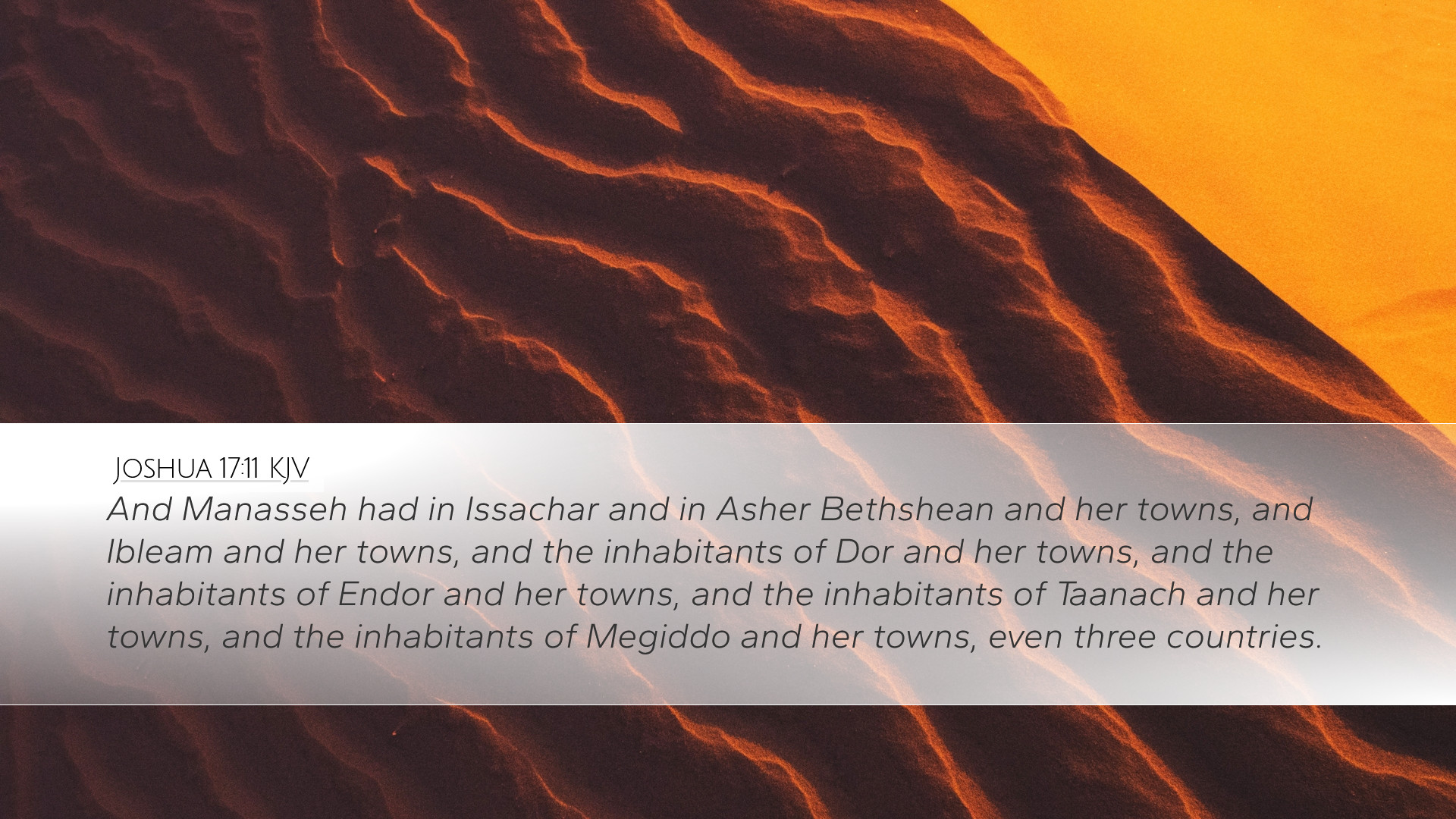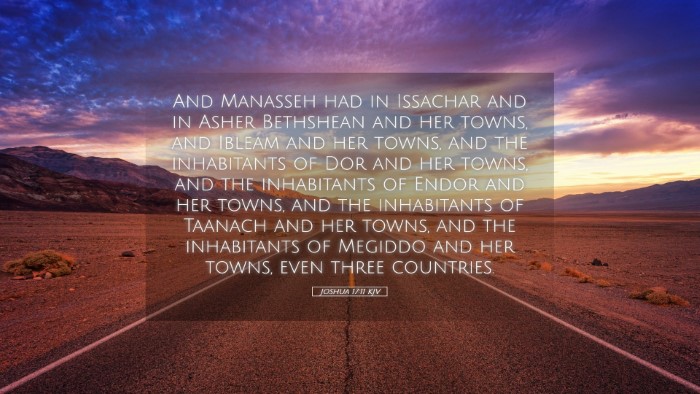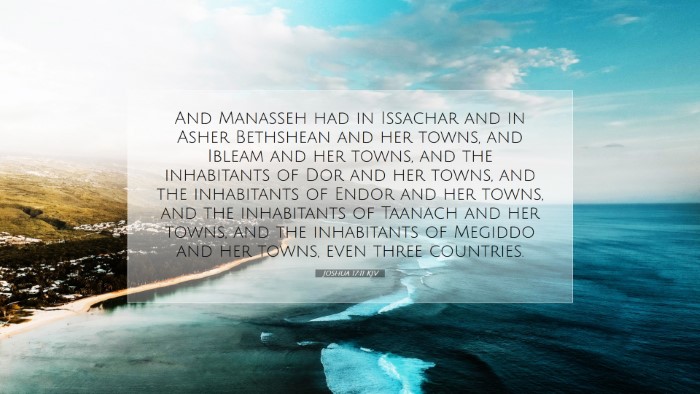Old Testament
Genesis Exodus Leviticus Numbers Deuteronomy Joshua Judges Ruth 1 Samuel 2 Samuel 1 Kings 2 Kings 1 Chronicles 2 Chronicles Ezra Nehemiah Esther Job Psalms Proverbs Ecclesiastes Song of Solomon Isaiah Jeremiah Lamentations Ezekiel Daniel Hosea Joel Amos Obadiah Jonah Micah Nahum Habakkuk Zephaniah Haggai Zechariah MalachiJoshua 17:11
Joshua 17:11 KJV
And Manasseh had in Issachar and in Asher Bethshean and her towns, and Ibleam and her towns, and the inhabitants of Dor and her towns, and the inhabitants of Endor and her towns, and the inhabitants of Taanach and her towns, and the inhabitants of Megiddo and her towns, even three countries.
Joshua 17:11 Bible Commentary
Commentary on Joshua 17:11
Joshua 17:11 states:
"And Gilead and the border of the Geshurites and Maachathites; and half Gilead, and the border of the children of Ammon." (KJV)
Contextual Overview
This verse is situated within the descriptive passages of the allocation of land among the tribes of Israel, following their entry into the Promised Land. The chapter outlines the inheritance granted to the tribe of Manasseh, which was the firstborn son of Joseph.
This allocation not only reflects God’s promises but also reveals the complexities of territorial divisions, cultural interactions, and the implications of land possession historically and spiritually.
The Land of Gilead
In this verse, the mention of Gilead is significant for a number of reasons:
-
Historical Significance:
Gilead was known for its fertile pastures and strength in warfare. This land would play a crucial role in Israel's defense against neighboring nations.
-
Spiritual Symbolism:
Gilead can also symbolize a place of healing as seen in the metaphor “balm of Gilead” used throughout Scripture, which conveys the hope of restoration.
Geshurites and Maachathites
The surrounding nations, the Geshurites and Maachathites, represent the presence of various cultures and the complexities that arise with possessing land inhabited by others:
-
Ethnic Diversity:
The mention of these peoples indicates the intermingling of the tribes of Israel with neighboring nations, which would become a source of both conflict and cultural enrichment.
-
Theological Implications:
This raises questions about God’s command regarding the conquest and the need for purity of worship within His nation.
Half Gilead and the Children of Ammon
The reference to half Gilead and the children of Ammon leads to critical reflections on:
-
Territorial Boundaries:
This denotes the defined borders that were a part of Israel’s inheritance, emphasizing the importance of ownership and the Lord’s provision.
-
Spiritual Reminders:
Being adjacent to the land of Ammon also presents a recurring motif of the struggle between God’s people and external influences. It signifies the challenges in maintaining faithfulness and purity within one’s territory.
Theological Insights from Commentaries
Insights from notable public domain commentators provide deep theological reflections:
-
Matthew Henry:
Henry emphasizes God's deliberate guidance in the distribution of land among the tribes, illustrating that each portion served a divine purpose. He points out that the naming of these peoples serves to remind the Israelites of their obligations and the dangers of intermingling with foreign nations.
-
Albert Barnes:
Barnes expounds on the geography and significance of Gilead, noting its military significance as well as its fertile grounds. He speaks to the dualities present in Israel's heritage of landownership coupled with threats from neighboring nations.
-
Adam Clarke:
Clarke discusses the implications of land inheritance and the responsibilities that accompany it. He draws parallels to Christian stewardship today, including moral and spiritual implications of our ‘promised lands’ or blessings in life.
Conclusion
In summary, Joshua 17:11 stands as a pivotal verse that encapsulates themes of heritage, divine guidance, and the complexities of faith amidst cultural diversity. The insights from these public domain commentaries illuminate the richness of scripture and encourage contemporary reflection on one's own life journey.


